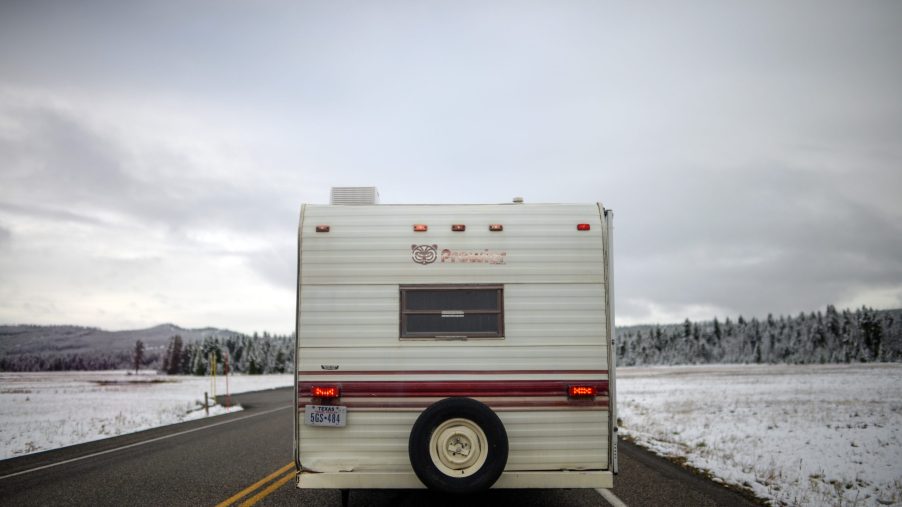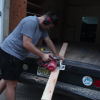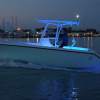
It’s Easy To Outfit Your RV or Camper for Use in the Winter
It’s traditionally the summer months when we see a constant string of campers and RVs rolling down the highway, but that always comes to a stop about halfway through fall. People tend to pack up their campers over the cold months, preferring to store them until next year’s summer comes around. But if you’re the excited owner of a new camper or RV, you’ll be glad to hear that that’s not at all mandatory. In fact, it’s easier than you might think to continue using your camper during the colder seasons; you just need a few little preparations to make it work.
Most people put their campers away for the winter
Whether it’s for hunting, skiing, snowmobiling, ice fishing, or any other number of cold-weather activities, if you keep an eye out for it, you’ll notice there are more campers than ever rolling down the highway this winter. This is due partly to a growth in the number of people partaking in winter activities and partly to a push by RV dealers prioritizing sales of four-season RVs and campers.
If you’re thinking about using your camper this winter when you never have before, the good news is that you’re used to winterizing it in order to put it into storage anyway. Winterizing it for use isn’t much different! Here are some of the areas you’ll want to focus on to continue using your camper well into the colder months.
Plumbing
Take a look at all of your plumbing systems including water tanks, dump valves, pipes, and drains. Determine where you may encounter freezing issues come winter. Wrap any exposed pipes in heat tape, then insulate that with foam pipe insulation for true peace of mind.
Water tanks usually have heating elements or furnace ducts running alongside them, but that means you may need to have the heat on while en route to your destination if you’re traveling in sub-zero temperatures.
For dump valves, it’s best to leave them closed. When emptying, don’t use any third-party sewer supports, as those may leave extra wastewater behind and able to freeze. Instead, elevate the sewer hose by hand and manually empty the waste fitting.
Potential air leaks
Unless your camper or RV is equipped with double-paned windows, you’ll want to ensure they are wrapped and insulated for winter. Vinyl window wraps are a great way to circumvent leaky windows. Likewise, RV dealerships sell pillows that insert into roof vents to insulate them, as well. You’ll also want to check for any areas pipes leave the camper and insulate them accordingly.
Heat
Depending on your camper’s heating system, it’s possible that you may need additional heat sources. Plan for all contingencies and bring along extra space heaters. Use caution with propane-fueled catalytic heaters, however, as they have the potential to deplete the oxygen within a room. Better to utilize electric space heaters.
Ventilation
Once everything inside your camper is all sealed up, a problem arises: condensation. Whether it’s because of steam from cooking or just from your breath, condensation can build up inside your camper and can even start to cause mold or mildew. To combat this, keep a fan blowing — even though that seems counter-intuitive during winter! You’ll be glad you did to keep the air flowing.
Whatever your reason is for wanting to try out some cold-weather RVing, we wish you the best of luck. Make sure you have all of your bases covered to ensure that you have a confident, safe, and warm trip, wherever you may be heading. Cold-weather camping offers some of the most unique opportunities, and you’ll be glad you tried it out.


